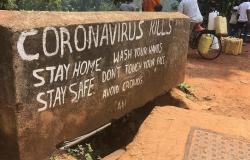
The deployment of soldiers for epidemic control in Africa has become more acceptable, even when human rights violations occur. This article outlines how this situation has arisen, foregrounding overlapping processes since the 1990s and the implications of Security Council Resolution 2177. It then explores effects with reference to Sierra Leone and Uganda. Drawing on long-term fieldwork, it discusses militarised epidemic control programmes during Ebola and COVID-19 outbreaks. It points out similarities in the responses to epidemics in these two countries, including the violent enforcement of regulations, but also striking differences. In Sierra Leone, a democratic transition of governmental power occurred, whereas militarised epidemic control in Uganda helped entrench autocratic public authority. To the extent that there is data available, disease control outcomes in the two countries were not widely divergent, yet the Ugandan response has been valorised. This highlights a drift towards less accountable forms of governance, justified by purported public health objectives.
Policy Implications
- Assessments of the positive health outcomes of militarised disease control in Uganda and Sierra Leone are not grounded in robust evidence. Assuming enforcement is efficient in public health terms is unhelpful and misleading.
- Those calling for mobilisation of military personnel for epidemic control should be aware of the diverse effects, including violent acts perpetrated on vulnerable people. Militarization should be a strategy of last resort.
- Policymakers and public health practitioners need to recognise that as militarised enforcement becomes more established as a norm, epidemic controls will have important effects on modes of public authority exercised by states and by international actors. They will be complicit in those political processes.
- When militaries are involved in pandemic responses, national governments and their international partners should build in oversight mechanisms to ensure that enforcement measures are appropriately monitored and constrained.
Image: SharonDawn Wikimedia Commons CC BY-SA 4.0 DEED